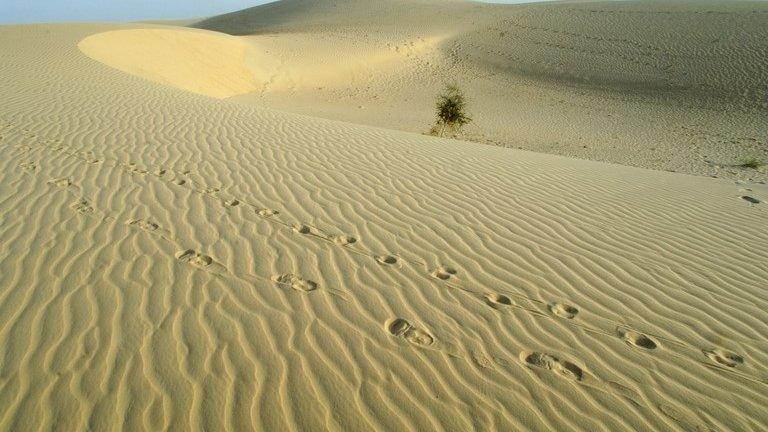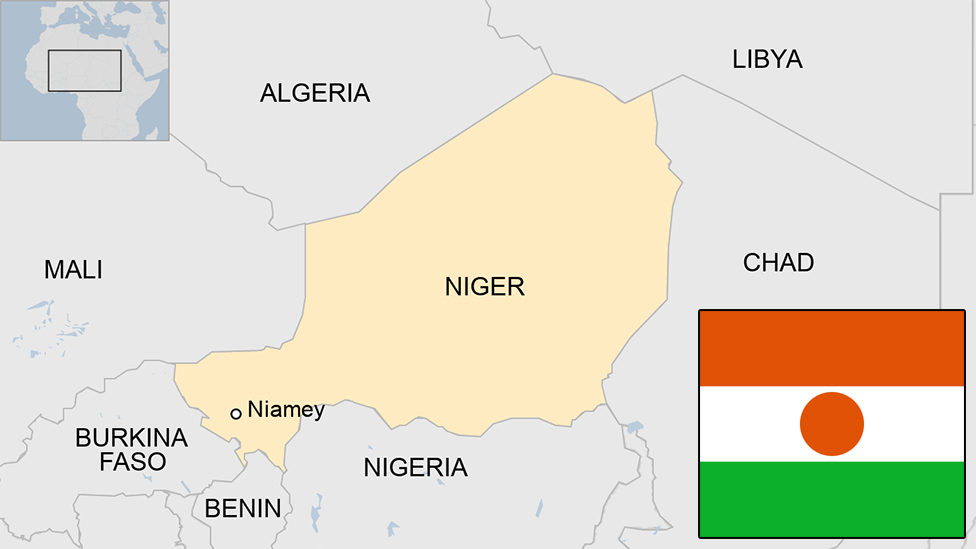Niger migrants' bodies found near Algerian border
- Published
Photos show the scene where the migrants were found in the Sahara
Rescue workers in Niger say they have found the bodies of 92 people who died of thirst after their vehicles broke down as they tried to cross the Sahara.
Rescue worker Almoustapha Alhacen said the corpses were in a severe state of decomposition and had been partly eaten, probably by jackals.
Those found are thought to be migrant workers and their families. Most were women and children.
Niger lies on a major migrant route between sub-Saharan Africa and Europe.
But among those who make it across the desert, many end up working in North African countries.
'It was horrible'
According to Mr Alhacen, one of the vehicles that the migrants were travelling in broke down some time after they left Arlit at the end of September or beginning of October.
Security officials said the second vehicle broke down as it was on its way back to Arlit to get spare parts.
It appears that some of the group set out on foot, including up to 10 people who made it back to Arlit and raised the alarm, he said.
It was reported on Monday that five bodies had been found.
On Wednesday, volunteers and soldiers working in searing heat found other corpses about 10km (six miles) from the Algerian border.
Mr Alhacen told the BBC's Hausa service the bodies of 52 children, 33 women and seven men had since been buried.
He said that it was most likely that the people were from Niger, judging by their dress and how the women's hair was braided.
Korans and tablets used by children at madrassas [Islamic school] were found amongst the belongings, said Mr Alhacen.
Speaking from Arlit, a centre for uranium mining north of Agadez, Mr Alhacen said he had experienced the worst day of his life when he found the bodies.
"The corpses were decomposed; it was horrible," he said.
"We found bodies across a wide area. We had no idea what to expect because we didn't know how many people had been in the vehicles."
They were given Muslim burials where they were found, Mr Alhacen said.
''What was shocking was that they were small. There was a dead woman holding her baby," he added.
Given that so many of those found were teenagers, Mr Alhacen said it was possible they were on their way to low-paid jobs in neighbouring Algeria.
"My guess is that the children were madrassa children, being taken to Algeria to work. That is the only explanation that I and others can find for such a large number of children having travelled together,'' Mr Alhacen said.
About 80,000 migrants cross the Sahara desert through Niger, according to John Ging, director of the UN Office for the Co-ordination of Humanitarian Affairs.
"They are basically economic migrants. They are in search of work. They are so impoverished that they have to make these hazardous journeys," he told the BBC's Newsday programme.
Niger is one of the world's poorest countries and frequently suffers from drought and food crises.
Migration routes across the Sahara desert

- Published31 October 2013

- Published4 August 2023
